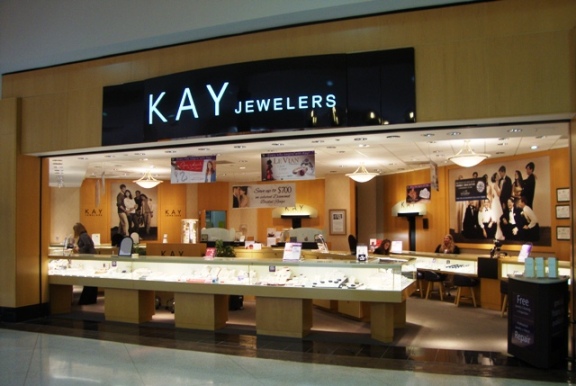Jewelry Retailer Accused of Opening Fake Store Credit-Card Accounts (#GotBitcoin?)

Signet Jewelers, which operates chains such as Kay and Jared, to pay $11 million to settle with regulators. Jewelry Retailer Accused of Opening Fake Store Credit-Card Accounts
Signet Jewelers Ltd. agreed Wednesday to pay $11 million in penalties to federal and state regulators for allegedly opening credit-card accounts—possibly hundreds of thousands—without customer consent at retail stores it operates under such brands as Kay Jewelers and Jared.
The Consumer Financial Protection Bureau and New York Attorney General’s office said the company pressured its sales representatives into signing up customers for store credit cards, enrolling customers in payment-protection insurance without their consent and misrepresenting the financing terms of their cards.
To meet quotas imposed by the company, sales representatives in some cases persuaded consumers to provide their personal information by purporting to sign them up for a store “rewards card,” loyalty program, or mailing list, according to regulators. They said sales representatives used consumers’ personal information to submit a credit application, which could negatively affect their credit scores.
The regulators didn’t say how many store cards were issued under such tactics but noted that over one million accounts were opened between 2013 and 2017 and were never used by the consumers who had supposedly applied for them.
The company said in a filing that it was cooperating with investigators and that it had agreed to the settlement without admitting or denying the charges. The settlement was signed with Sterling Jewelers Inc., a wholly-owned Signet subsidiary, which operates more than 1,500 jewelry stores nationwide under several brand names.
“While we disagree with the allegations made against Sterling, we chose to negotiate a resolution of this matter to avoid the time, expense and uncertainty of litigation with the agencies,” a Signet spokesman said. “We have used this opportunity to internally reaffirm the transparency and fairness of our credit-related policies, and we look forward to continuing to provide our customers with access to suitable credit options.”

The regulators’ action against the jeweler comes as many retailers look to diversify their sources of revenue to compete with online retailers such as Amazon.com Inc.
According to a November survey by CreditCards.com, more than half of top retailers offer store credit cards, charging an average annual interest rate of 26%, higher than the average 21% for general-purpose credit cards issued by banks and others.
“Especially for some of the legacy retailers, with their traditional business under pressure, they are making more and more money from these credit cards,” said Ted Rossman, industry analyst for CreditCards.com He added that store cards issued by Signet brands carry average interest rates of close to 30%, among the highest for major retailers.
Sterling had imposed quotas on employees for store card enrollment, on which the company would base performance reviews and compensation, the regulators said. “Employees were terminated for failing to meet credit-application performance standards,” the regulators said.

Between 2014 and 2017, the regulators said, Sterling had over three million open credit-card accounts, which generated more than $300 million in net revenue each year. Roughly 60% of Sterling’s total sales are financed by consumers using store credit cards, they said.
The settlement also comes as financial regulators scrutinize marketing practices used by companies to sign up customers for financial accounts following a 2016 scandal at Wells Fargo & Co. Under pressure from managers, Wells Fargo branch employees opened millions of fake accounts without customer knowledge.
According to the settlement, Signet would also follow compliance actions to ensure consumers know and consent to the issuance of credit cards, payment-protection insurance and other related products.
The company said it would recognize the $11 million pretax charge in the fourth quarter ending Feb. 2.
Related Article:
Maxine Waters (D., Calif.) Rises As Banking Industry’s Overseer (#GotBitcoin?)
Your questions and comments are greatly appreciated.
Monty H. & Carolyn A.
Go back
Leave a Reply
You must be logged in to post a comment.